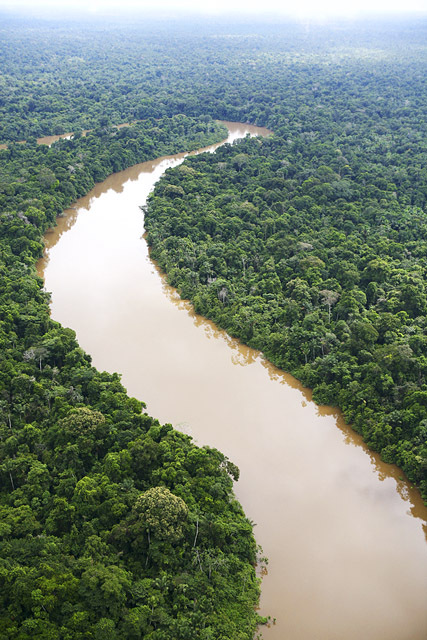We’re helping to protect the ten most important rivers in the world
When was the last time you took a walk beside a river, rowed a boat downstream, swam in the shallows, cast a fishing rod from the bank, threw bread to the ducks, or just stood on a bridge and watched the water flow beneath you?
Rivers are wonderful places to relax, reflect and gain inspiration. But they also provide precious water for farming, drinking and industry, help us travel and transport goods over long distances, and are a home for everything from dragonflies to dolphins.
They’re a vital resource for humans and animals alike. And we’re committed to keeping them flowing.
What’s at stake?
Rivers throughout the world are under threat from human development. We’re taking more water from them than ever before, creating dams, building on banks and floodplains, and polluting them.
As the effects of climate change increase, flooding is more likely in some rivers, while others are at risk of drying up.
The story so far
WWF works in many of the world’s most important rivers including the Amazon, Amur, Congo, Danube, Ganges, Indus, Mekong, Niger, Yangtze and Zambezi.
- China’s Yangtze Conservation Network has established 100 nature reserves across 2 million hectares of wetlands and linked 40 lakes covering more than 120,000 hectares back into the Yangtze. This huge initiative is restoring the ecological integrity of the river, including natural flood control systems that benefit more than 100,000 people.
- Flowing across northern India and providing a livelihood to over 400 million people, the Ganges is revered by nearly a billion Hindus. We’ve been working towards an approach to sustainably managing the whole river basin, to help it withstand the many threats it faces – including hydropower, changing water flows, biodiversity loss, pollution and climate change. Our work is now being scaled up and integrated into national plans to restore the river to its former glory.
- With WWF’s support, some 1.4 million ha along the lower Danube has been brought under protection, benefitting some of Europe’s most outstanding wildlife and the area’s 29 million people.
- With the governments of China, Russia and Mongolia, we’ve helped keep the Amur, one of the world’s last and longest free-flowing rivers, free of dams. We’ve also helped establish a network of 10 protected wetland areas and forest protected areas within the river basin.
We’ve also worked with some of the world’s leading companies, including The Coca-Cola Company, HSBC and IKEA, to find ways to reduce the demands industry makes on rivers and to restore river environments.
Dams are one of the biggest threats to healthy rivers. Today nearly two-thirds of the world’s largest rivers are broken up by dams – often at massive cost to local people and wildlife.
In 2010 we won an agreement to change the way water was flowing through a dam on the Yangtze River in China. Making the flow closer to the river’s natural patterns has benefited hundreds of species including the threatened finless porpoise and Yangtze sturgeon.
Did you know?
China’s Yangtze river runs through an area populated by more than 400 million people.
Facts and stats
- 400 million – people who depend on the Ganges for their livelihoods.
- 276 – number of river basins shared by two or more countries, covering nearly half of the Earth’s land surface.
- 33% – of China’s fish live in the Yangtze river.
What next?
We’re calling for an international agreement on sustainable management of the world’s rivers.
So far, 22 countries have joined the UN Watercourse Convention that sets standards for sharing waters across international borders. For the treaty to come into force, 35 countries need to ratify it – so we’re keeping the pressure up to get the remaining 13 countries required on board.
What you can do
- The Ganges River dolphin is just one of the rare species whose habitat is being threatened by dams. By sharing their story by e-mail or Facebook, you can help us spread the word about sustainable rivers.
- Call on your government to swiftly join the UN Watercourses Convention
- UN Watercourses Convention Global Initiative.
***************************************
Join the myWWF Action Center
Be part of a global community of activists ready to take simple online actions that can help save wildlife and people. Sign up today!
***************************************














